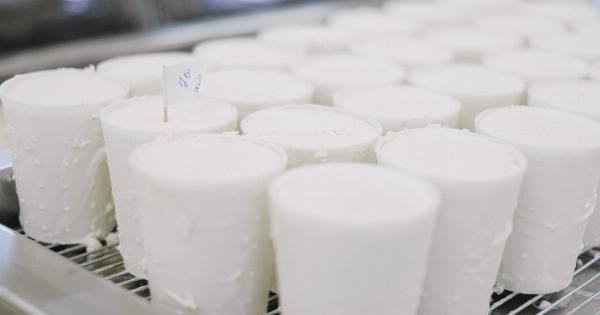Breastfeeding is the most natural way to feed a baby and it provides numerous benefits for both the mother and the baby.
It is known to strengthen the immune system, decrease the risk of certain illnesses and can even enhance cognitive development in infants. However, breastfeeding also plays a crucial role in the development of a baby’s teeth.
Why is breastfeeding important for dental development?
Breastfeeding provides the perfect balance of nutrients for infants, along with many other benefits. One significant way it supports dental development is through the correct positioning of the tongue.
When breastfeeding, a baby’s tongue should be positioned against the lower gum, which is ideal for producing the correct pressure on the upper jaw and palate. This pressure helps to shape the upper jaw and palate, which is critical for proper tooth development and alignment.
What are the common issues that can arise during breastfeeding?
While breastfeeding is the natural way to feed a baby, it can still be a challenge for some mothers.
One common issue that many mothers experience is latching difficulties, which can cause pain and discomfort for the mother and prevent the baby from receiving the proper amount of milk. This can also affect the baby’s dental development, as incorrect positioning of the mouth can impact the position of the teeth.
Milk supply can also be a concern, as a lack of milk can result in the baby not receiving the essential nutrients needed for proper dental development.
Therefore, it is crucial for mothers to ensure they are producing enough milk and that the baby is receiving it effectively.
When do babies start teething?
Babies typically begin teething at around six months of age, but it can occur anywhere between 3-12 months. The first teeth to appear are usually the lower front teeth, followed by the upper front teeth, then the molars and canines.
How do I care for my baby’s teeth while breastfeeding?
Caring for a baby’s teeth is essential, even before they have erupted. During breastfeeding, mothers can take steps to ensure that their baby’s dental development progresses properly. These steps include:.
1. Clean your baby’s gums regularly
Before your baby’s teeth even erupt, you should clean their gums with a soft, damp cloth after each meal. This helps to remove any milk or food residue which can cause bacteria to grow in the mouth.
2. Limit snacking between meals
When your baby begins eating solid foods, it is important to limit snacking between meals. This helps to reduce the frequency of exposure to sugars, which can cause tooth decay.
3. Avoid sugary drinks
It is never too early to start good dental habits. Avoid giving your baby sugary drinks such as fruit juice or soda, and instead, opt for water.
4. Visit the dentist regularly
It is recommended that a baby’s first dental visit is scheduled within six months of their first tooth eruption, or by their first birthday.
Regular dental check-ups can help to ensure proper dental development and alert parents to any potential issues.
5. Keep breastfeeding as long as possible
Continuing to breastfeed your baby for as long as you can is recommended. The nutrients and antibodies provided in breast milk help to strengthen a baby’s immune system and support their dental development.
What are the common dental issues for babies?
Babies are susceptible to a variety of dental problems, including tooth decay, teething pain, and gum disease. Tooth decay can occur if the baby is regularly exposed to sugary foods or drinks, while teething can cause discomfort and pain.
Another common issue is baby bottle tooth decay, which occurs when a baby falls asleep with a bottle in their mouth or drinks from a sippy cup for extended periods. The sugars from milk or formula can pool around the teeth, causing decay and cavities.
Conclusion
Breastfeeding plays a crucial role in an infant’s dental development. It supports proper positioning of the tongue, which helps to shape the upper jaw and palate, and provides essential nutrients to promote healthy teeth and bones.
Mothers should pay close attention to their baby’s dental health and take steps to ensure proper dental care is practiced from a young age. Regular dental check-ups and visits to the dentist can help to identify potential issues early and prevent any further damage.























